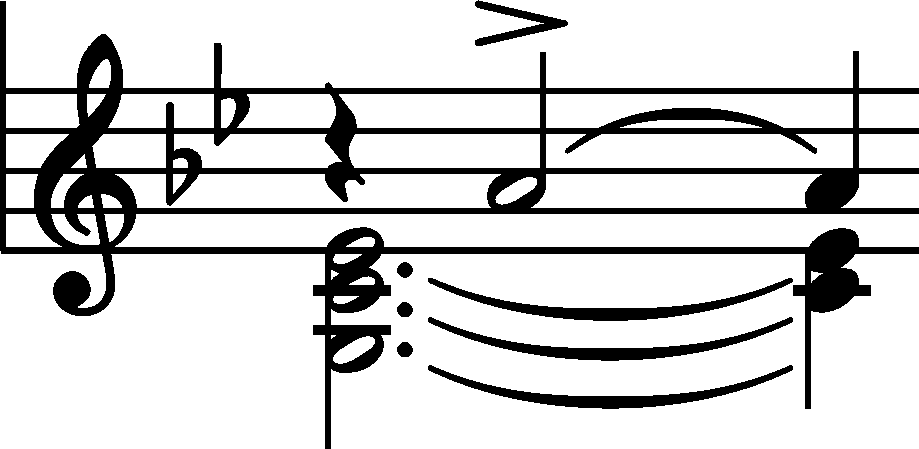



On the available photograph of A, the notation of the bass g note is difficult to interpret:
- at the beginning of the bar, it is separated from the chord and is a dotted semibreve. According to us, however, it may be an inaccuracy of notation resulting from the correction of the pitch of this note (initially, it was an f
 ), while the intended rhythmic value could have been a dotted minim
), while the intended rhythmic value could have been a dotted minim  ;
; - there is a tie at the pitch of this minim/semibreve, yet it is unclear which note it is supposed to reach. Nevertheless, one can see there a trace that could be interpreted as a deletion of an f
 note.
note.
On the basis of the described analysis of A and of the version of FE (→GE,EE), which was prepared on the basis thereof, one can conclude the following:
- the notation of A is erroneous – either incomplete (no g crotchet, which should be reached by the tie) or erroneous (superfluous tie); the mistake could have been caused by distraction while implementing the corrections;
- the version of FE (→GE,EE) was probably the engraver's attempt to interpret the notation of A in the simplest way possible (omission of the vague element); therefore, it is uncertain whether it was introduced or at least accepted by Chopin.
- Chopin's integrated approach to b. 45 and 47 – similar changes to the bass note (raised half a tone), change of rhythm in b. 45, making the bar resemble b. 47 – suggests that Chopin wanted to fully unify these bars in terms of rhythm and harmony.
Taking into account the fact that both the version of FE (→GE,EE) and other possible conjectures of the notation of A result in versions that are practically equal to a version fully analogous to b. 45 in terms of sound, this is the version we suggest in the main text.
Compare the passage in the sources »
category imprint: Graphic ambiguousness; Differences between sources
issues: Errors resulting from corrections, FE revisions, Inaccuracies in A
notation: Rhythm
